Textile Mills Grants and Funding in Quebec for 2026
Accelerate modernization, automation, and sustainable growth with targeted programs. Explore provincial and federal support tailored to Quebec textile manufacturers.
In Quebec, textile mills and manufacturers can access a robust mix of grants, tax credits, and repayable contributions to support modernization, automation, sustainability, export development, and workforce training. This directory provides a structured overview of Quebec textile funding, including Industry 4.0, energy efficiency, circular economy, and R&D supports. It is designed for weaving, spinning, knitting, nonwovens, dyeing and finishing operations across Montreal, Quebec City, Sherbrooke, Laval, and regional hubs.
31 opportunities available

Grant and FundingOpen
ÉcoPerformance — Recommissioning of building mechanical systems
Funding to optimize the operation of building mechanical systems
Eligible Funding
- Maximum amount : 100,000 $
- Up to 75% of project cost
Eligible Industries
- Agriculture, forestry, fishing and hunting
- Manufacturing
- Educational services
- Other services (except public administration)
Types of eligible projects
Environment and Climate

Grant and FundingClosed
GHG Challenge Program - Industry
Supports major industrial projects reducing greenhouse gas emissions
Eligible Funding
- Maximum amount : 50,000,000 $
- Up to 75% of project cost
Eligible Industries
- Mining, quarrying, and oil and gas extraction
- Manufacturing
Types of eligible projects
Environment and ClimateInnovation

Grant and FundingOpenClosing Soon
Economic development program to help revitalize territories (DEPART)
DÉPART supports economic diversification and growth in targeted areas
Eligible Funding
- No Condition
Eligible Industries
- Manufacturing
- Information and cultural industries
- Accommodation and food services
Types of eligible projects
TechnologyConstruction and Renovation Business BuyoutInnovation

Grant and FundingOpen
Innovative Projects Program
Supports innovative, energy-efficient projects for multi-building developments
Eligible Funding
- Maximum amount : 12,000,000 $
- Up to 75% of project cost
Eligible Industries
- Agriculture, forestry, fishing and hunting
- Construction
- Manufacturing
- Wholesale trade
Types of eligible projects
TechnologyEnvironment and ClimateInnovation
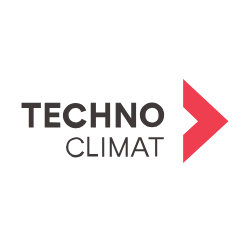
Grant and FundingOpen
Technoclimat
Financial assistance for the demonstration of new technologies in Quebec
Eligible Funding
- Maximum amount : 3,000,000 $
- Up to 50% of project cost
Eligible Industries
- Agriculture, forestry, fishing and hunting
- Utilities
- Construction
- Manufacturing
Types of eligible projects
TechnologyEnvironment and ClimateInnovation

Partnering and CollaborationGrant and FundingExpert AdviceSuspended
Financial support to assess your energy use Hydro Quebec
Up to $50,000 for energy performance analysis and optimization
Eligible Funding
- Maximum amount : 50,000 $
- Up to 40% of project cost
Eligible Industries
- Utilities
- Construction
- Manufacturing
- Wholesale trade
Types of eligible projects
Environment and Climate
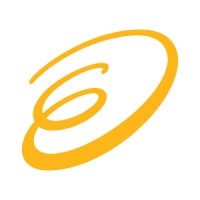
Grant and FundingOpen
Enbridge Gas Quebec — Custom-made project
Supports energy-saving projects using natural gas in buildings
Eligible Funding
- Maximum amount : 75,000 $
- Up to 40% of project cost
Eligible Industries
- Utilities
- Construction
- Manufacturing
- Wholesale trade
Types of eligible projects
Environment and Climate

Tax CreditsOpen
Additional deduction for transportation costs for manufacturing SMEs
Tax deduction for manufacturing SMEs' transportation costs in remote areas
Eligible Funding
- Up to 25% of project cost
Eligible Industries
- Manufacturing
Types of eligible projects

Grant and FundingClosed
Aid measure for the decarbonization of Quebec's industrial sector (MADI)
Supports Quebec industrial decarbonization projects for reduced GHG emissions
Eligible Funding
- No Condition
Eligible Industries
- Mining, quarrying, and oil and gas extraction
- Manufacturing
Types of eligible projects
TechnologyEnvironment and ClimateInnovation

Grant and FundingOpen
Regions and Rurality Fund (RRF) - Component 1 - Support for regional outreach
Supports regional projects impacting Quebec's territories and communities
Eligible Funding
- From $100,000 to $3,000,000
- Up to 80% of project cost
Eligible Industries
- Agriculture, forestry, fishing and hunting
- Utilities
- Construction
- Manufacturing
Types of eligible projects
Environment and ClimateInnovation
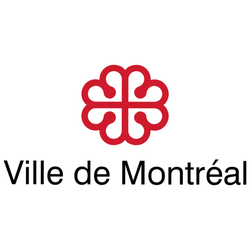
Grant and FundingExpert AdviceOpen
Grant for a circular economy assessment
Supports businesses in Montreal adopting circular economy practices
Eligible Funding
- Maximum amount : 15,000 $
- Up to 75% of project cost
Eligible Industries
- Manufacturing
- Professional, scientific and technical services
- Administrative and support, waste management and remediation services
- Other services (except public administration)
Types of eligible projects
Environment and Climate
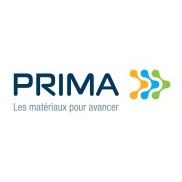
Grant and FundingClosed
PRIMA — Call for Projects
Funding for collaborative advanced materials R&D projects in Quebec
Eligible Funding
- Maximum amount : 1,500,000 $
- Up to 40% of project cost
Eligible Industries
- Manufacturing
- Transportation and warehousing
- Health care and social assistance
Types of eligible projects
TechnologyInnovation
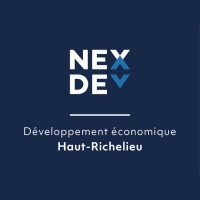
Grant and FundingExpert AdviceOpen
Productivity and Sustainable Innovation Fund – Stream 1: Company consultations/micro-diagnosis and selection assistance
Financial support for productivity and innovation in local industries
Eligible Funding
- Maximum amount : 10,000 $
- Up to 50% of project cost
Eligible Industries
- Manufacturing
- Wholesale trade
- Transportation and warehousing
- Other services (except public administration)
Types of eligible projects
Artificial Intelligence (AI)TechnologyInnovationDigital Transformation

Grant and FundingExpert AdviceOpen
Productivity and Sustainable Innovation Fund – Component 2: Feasibility study - audit towards a 4.0 transition
Financial support for industrial digital transformation and productivity improvement
Eligible Funding
- Maximum amount : 5,000 $
- Up to 50% of project cost
Eligible Industries
- Manufacturing
- Wholesale trade
- Transportation and warehousing
Types of eligible projects
TechnologyInnovationDigital Transformation

Grant and FundingOpen
ÉcoPerformance — Implementation of large industrial projects
Financial support for large-scale industrial projects
Eligible Funding
- Up to 75% of project cost
Eligible Industries
- Manufacturing
Types of eligible projects
Environment and Climate

Loans and Capital investmentsClosed
DEL — Equipment and Technology Loan
Enhance business efficiency through financing equipment and technology investments
Eligible Funding
- Maximum amount : 150,000 $
- Up to 50% of project cost
Eligible Industries
- Manufacturing
Types of eligible projects
Technology
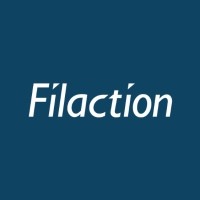
Loans and Capital investmentsOpen
Mosaic Fund
Business loans for Quebec's cultural communities entrepreneurs
Eligible Funding
- From $50,000 to $500,000
Eligible Industries
- Construction
- Manufacturing
- Wholesale trade
- Retail trade
Types of eligible projects
Business Buyout
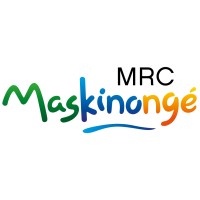
Grant and FundingOpen
MRC Maskinongé — Young Entrepreneurs
Youth Entrepreneur Fund supports young business creation and acquisition
Eligible Funding
- Maximum amount : 14,000 $
Eligible Industries
- Manufacturing
Types of eligible projects
Business Buyout

Grant and FundingClosed
Rural Vitality Fund – Automation and Digital Practices
Financial support for rural businesses advancing automation and digitalization
Eligible Funding
- From $1,000 to $5,000
- Up to 10% of project cost
Eligible Industries
- Manufacturing
- Retail trade
- Other services (except public administration)
- Public administration
Types of eligible projects
TechnologyDigital Transformation

Grant and FundingOpen
Enbridge Gas Quebec — Cash incentives – Innovation
Supports innovative projects for natural gas efficiency and GHG reduction
Eligible Funding
- Maximum amount : 25,000 $
- Up to 75% of project cost
Eligible Industries
- Utilities
- Manufacturing
- Professional, scientific and technical services
- Educational services
Types of eligible projects
Environment and ClimateInnovation

Partnering and CollaborationGrant and FundingClosed
PRIMA — SI2TEC – Feasibility Studies
Supports feasibility studies for circular economy projects in Québec
Eligible Funding
- Maximum amount : 75,000 $
- Up to 50% of project cost
Eligible Industries
- Manufacturing
- Professional, scientific and technical services
- Administrative and support, waste management and remediation services
Types of eligible projects
TechnologyEnvironment and ClimateInnovation

Grant and FundingWage Subsidies And InternsClosed
Regional Initiatives Fund (FAIR)
Supports economic development and innovation in Gaspésie–Îles-de-la-Madeleine region
Eligible Funding
- Maximum amount : 150,000 $
- Up to 90% of project cost
Eligible Industries
- Agriculture, forestry, fishing and hunting
- Utilities
- Construction
- Manufacturing
Types of eligible projects
CommercializationTechnologyEnvironment and ClimateHuman ResourcesInnovation

Grant and FundingClosed
Economic Diversification Fund (FDE) for the MRC des Sources territory
Supports economic diversification and business development in MRC des Sources
Eligible Funding
- No Condition
Eligible Industries
- Construction
- Manufacturing
- Wholesale trade
- Retail trade
Types of eligible projects
Human ResourcesInnovation

Grant and FundingClosed
PRIMA — Call For Projects In Artificial Intelligence And Quantum Technologies
Funding for AI and quantum technology innovation projects
Eligible Funding
- Maximum amount : 1,500,000 $
- Up to 35% of project cost
Eligible Industries
- Agriculture, forestry, fishing and hunting
- Manufacturing
- Transportation and warehousing
- Information and cultural industries
Types of eligible projects
Artificial Intelligence (AI)TechnologyInnovation

Grant and FundingClosed
SME in action
Supports Quebec SMEs in productivity, growth, and competitiveness
Eligible Funding
- No Condition
Eligible Industries
- Manufacturing
Types of eligible projects
TechnologyHuman ResourcesBusiness BuyoutInnovationDigital Transformation

Researchers And FacilitiesExpert AdviceOpen
Synchronex
Research centres and technical experts across Quebec
Eligible Funding
- No Condition
Eligible Industries
- Agriculture, forestry, fishing and hunting
- Manufacturing
- Transportation and warehousing
- Professional, scientific and technical services
Types of eligible projects
Technology
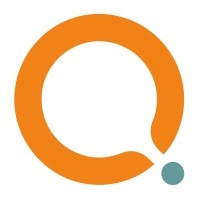
Other SupportClosed
Circular Initiatives Awards
Recognizes innovative circular economy initiatives across Quebec organizations
Eligible Funding
- No Condition
Eligible Industries
- Manufacturing
- Administrative and support, waste management and remediation services
- Educational services
- Other services (except public administration)
Types of eligible projects
Environment and ClimateInnovation

Grant and FundingClosed
2023 Call for Proposals
Funds to support youth volunteer programming and micro-projects
Eligible Funding
- Maximum amount : 8,000,000 $
Eligible Industries
- Agriculture, forestry, fishing and hunting
- Mining, quarrying, and oil and gas extraction
- Utilities
- Construction
Types of eligible projects

Grant and FundingClosed
BOLT Grant Program
Supports projects expanding global Internet connectivity through prototypes and pilots.
Eligible Funding
- Maximum amount : 300,000 $
Eligible Industries
- Agriculture, forestry, fishing and hunting
- Mining, quarrying, and oil and gas extraction
- Utilities
- Construction
Types of eligible projects

Grant and FundingClosed
PRIMA — PARTENAR-IA — Academic
Funding for Quebec R&D collaborations in AI for advanced materials
Eligible Funding
- Maximum amount : 500,000 $
- Up to 50% of project cost
Eligible Industries
- Manufacturing
Types of eligible projects
Artificial Intelligence (AI)

Tax CreditsArchived
Capital Synergie
Supports business investment in innovative, high-growth Quebec companies
Eligible Funding
- Maximum amount : 225,000 $
- Up to 30% of project cost
Eligible Industries
- Manufacturing
- Information and cultural industries
- Professional, scientific and technical services
Types of eligible projects
Artificial Intelligence (AI)TechnologyEnvironment and ClimateInnovation
Frequently asked questions about Quebec textile grants
Find clear answers on eligibility, application steps, program types, stacking with tax credits, and timelines for textile mills in Quebec.
Which grants are available for textile mills in Quebec in 2026?
How do I apply for automation grants for a textile factory in Montreal?
Can Quebec textile grants cover used equipment?
How can I combine grants and tax credits like C3i and SR&ED?
What documents are required for an ESSOR application in textiles?
Are there grants for dyehouse wastewater treatment and water recycling?
How does helloDarwin help Quebec textile manufacturers get funding?
What timelines should textile mills expect from application to reimbursement?
What funding exists for export market development for textiles?
Are there training subsidies for loom operators and textile technicians?
What else should I know about Grants and Funding for Textile Mills in Quebec?
Find similar grants
By Funding Type
By Business Size
By Service
By Audience
By Industry
Education Grants in Quebec
Grants and Funding for Culture in Quebec
Grants and Funding for Financial Services in Quebec
Grants and Funding for Green Manufacturing and Decarbonization in Quebec
By Industry Subsectors
By Administrative Region
Grants and Funding in Abitibi-Témiscamingue
Grants and Funding in Bas-Saint-Laurent
Grants and Funding in Capitale-Nationale
Grants and Funding in Centre-du-Québec
Grants and Funding in Chaudière-Appalaches
Grants and Funding in Côte-Nord